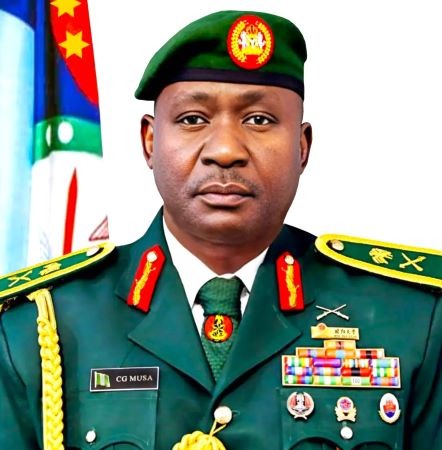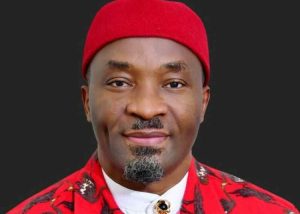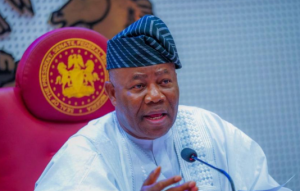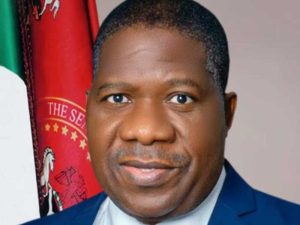General Musa And A Military Conquered By Terrorists

General Musa And A Military Conquered By Terrorists
THE most frustrating and embarrassing news swirling through media space came from the Defence Headquarters yesterday. The military is ‘blaming foreign herders for deadly attacks in Benue, Plateau and other regions of the country due to lax and porous borders’ calls for fundamental reordering of Nigerian security architecture.
The Director of Defence Media Operations, Major General Markus Kangye, curiously said intelligence and arrest records suggest that many of the attackers are not Nigerian nationals. Without mincing words, Nigeria is tragically at a tipping point—to say the least—that foreign nationals who are Islamic Fulani terrorists have now been allowed to chase Nigerian citizens away from their homes and farmlands while huge numbers of internally displaced persons (IDP) camps are littered across the country and the military is throwing its hands up in defeat and helplessness.
The only thing about what General Markus said, which is already known by all, is that Islamic Fulani terrorist invasions in Nigeria have led to significant violence and displacement, with devastating effects on local communities but without meaningful military intervention. Fulani Jihadism is at the heart of the conflicts that are largely driven by northern religious chauvinists, exacerbated by uncontrollable and unproductive population growth.
The military and other security agencies like the Nigeria Police Force and the Department of State Services (DSS) can’t feign ignorance of not knowing that Governor Bala Mohammed of Bauchi State and the Miyetti Allah group are the precursors of terrorism in Nigeria. Just recently, on national television, the governor said, “We’ve invited Fulani worldwide to settle in Nigeria and those Fulani herders carry AK-47s for self-defense.” Or can the security agencies claim that they are unaware of former President Muhammadu Buhari’s open invitation to Islamic Fulani terrorists without restrictions that ignited unprecedented killings across the country?
Nearly five years ago, I warned that total decimation of the military was only a matter of time if its leadership failed to strictly abide by scientific means of curtaining insecurity. Today, the insurmountable insecurity challenges have remained, with various factors contributing to the country’s complex security landscape. It is increasingly clear that a more comprehensive approach is needed to burnish the tragic weaknesses, but certainly not with the current leadership, headed by General Christopher Musa.
In 2014, I pointedly cautioned the military to face squarely the business of warding off external aggressors which Islamic Fulani terrorists belonged and I quote, “Annoyingly—and to the Nigerian army’s aloofness—while enmeshed in oil bunkering, the country has become a killing field in the hands of terrorists. So far, under President Tinubu’s administration, 6,931 Nigerians have been killed by various terrorist groups. The death toll is apparently higher than 8,356 wasted under President Buhari’s 8 years in office and far worse than President Goodluck Jonathan’s 2,059, all in 10 months, according to a reliable report”.
“Nigeria has 86 legal access points and over 1,400 illicit ones, indicating some of the world’s most porous borders. Numerous transnational crimes flourish along Nigeria’s borders with other neighbouring countries due to the border’s porosity”.
“The government has been abdicating its constitutional mandate to protect the lives and property of her citizens by not restricting entry and exit into the nation’s roughly 4,500-kilometre land borders with the Republics of Niger, Cameroon, Chad, and Benin to reduce cross-border crimes. If Mexico can have its nearly 2,000 kilometre wall all together built and intact, Nigeria can’t explain away why the nation has become a killing field”.
“A serious-minded Nigerian military should by now be leveraging the usage of geotagging as an effective tool in combating security challenges, which can be used by assigning a geotag to a digital photograph or video, a posting on social media, phone calls, etc.; by geotagging the location of the individuals can be pinpointed instantaneously. It also helps in location-based monitoring and tracking; identifying high-risk areas and hotspots, enhancing situational awareness and response, facilitating targeted interventions and resource allocation and improving incident reporting and analysis.”
Burdened by unprecedented corruption, no one should expect the economic warfare that the battle against insurgency has become in Nigeria to come to an end soonest. Corruption within the military has undermined their effectiveness and eroded public trust. Just one individual in 2018, the illegally incarcerated Deputy Commissioner of Police (DCP) Abba Kyari who headed the Intelligence Response Team (IRT), singlehandedly arrested Boko Haram terrorist Baa Adam, who confessed to masterminding over one hundred and thirty-three suicide bombings in Nigeria. The intelligence operation reasonably brought to an end the rampant terrorist suicide bombings in Borno State and northeastern Nigeria in 2018, which the Nigerian military has no answers to.
General Christopher Musa and the Nigerian military must adopt a comprehensive approach that addresses the root causes of insecurity in Nigeria. This approach should include economic development, institutional reform, dialogue and reconciliation, artificial intelligence, geotagging, regional cooperation, border closures and effective leadership. Outside that, the entire service chiefs are merely occupying their exalted office for economic reasons.
Erasmus Ikhide
![]()





